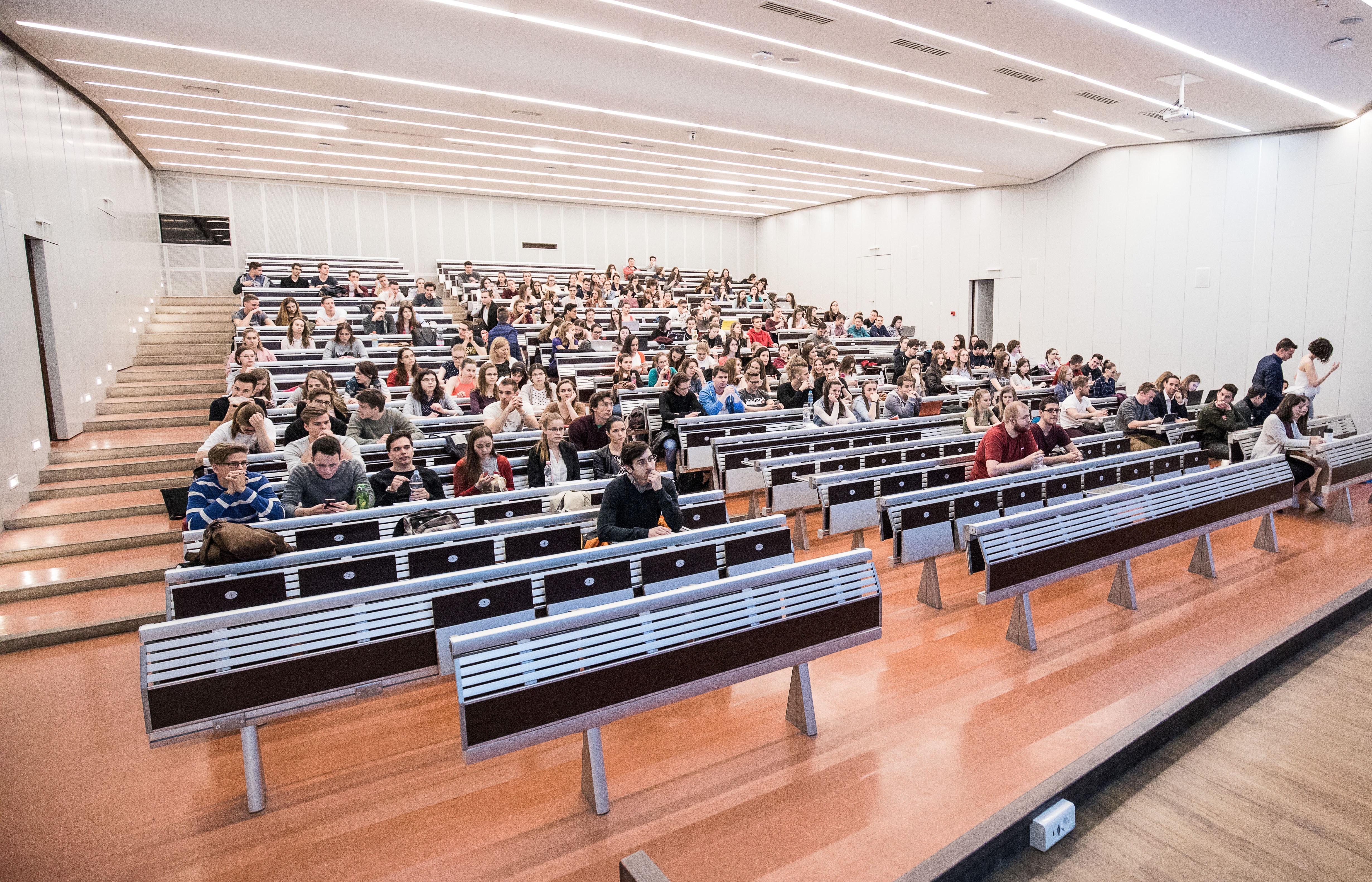Renewal is necessary, this is what the students expect
Significant changes have occurred in Corvinus University of Budapest since the one year after the transition to the foundation structure. As a result of the transition, several programs were renewed and new programs will follow in the future.
The Vice-Rector said that they had started to review the education portfolio of the university and define the long-term goals two years ago.

New program, new approach
The faculty structure ceased at the university as of February, and it was replaced by 12 university institutes and 3 competence enters. “The transformation was necessary to eliminate unnecessary parallels, for example, separate faculty study offices”, while cooperation among the educational and research units should increases iun course of the programs and the research – highlighted Lajos Szabó.
The programs will undergo content and methodological renewal. According to the Vice-Rector, this was necessary for several reasons. Firstly, upon the introduction of the Bologna process, a strange fragmentation developed in the business bachelor programs. There are too many bachelor programs, with too many specific programs; furthermore, the material learned in the bachelor program often reoccur in the masters program as well. The goal is to ensure that the bachelor programs become truly foundation programs, while specialised knowledge is taught in the masters programs. In Mr. Szabó’s opinion, it has not been easy for students to choose the appropriate bachelor program, since at the age of 18 or 19 they do not necessarily know what exactly they want to do in the future. However, in the new system less bachelor programs are launched which in turn have broader baes and are truly integrating, and the specialisation occurs in the second half of the program, mostly in the third year, by which time the students will already have sufficient knowledge and experience to be able to make a good decision.
Secondly, the curriculums had to be transformed as well: instead of the lecturer – or more precisely, the material to be presented – the students have to be in the focus. Namely, instead of specifying what the lecturer has to teach, the emphasis is on what the students have to complete, learn and how.
In the opinion of the Vice-Rector, the change in the approach is in the interest of both the students and the market, as companies, institutions and future workplaces expect the students to leave the university with knowledge usable in practice as well.
The studying and development process of the student will be helped by mentors. The new system is launched in the renewed programs this year: in the new system the lecturers mentor and support a few students, they can be contacted if anybody has a question, is stuck or has professional dilemmas, and they will provide help in career counselling as well. This makes it much easier for the students, and they will have more opportunities to proceed and develop at their own paces.

Four programs were launched already in the renewed form this autumn
Four BCE programs were launched already in the renewed form from the autumn of 2020:
- Applied Economics bachelor program
- International Management bachelor program
- Economic Analyst bachelor program
- and the Executive Master of Business Administration program.
The transformation of the International Management program affected not only the approach but the duration of the program as well: instead of the previous seven, the program now lasts eight semesters, and it can be completed exclusively in English. The additional one semester is completed by the students abroad, organised by and using the relations and cooperation BCE has with partner universities. Therefore, the students can gain experience abroad while studying in the programs of Corvinus.
There is a dual reason behind the reform of the Applied Economics and the Economic Analyst programs:
The expert explained that those students who had started the programs renewed this year earlier will not suffer any disadvantage either, since the faculty members of the university will bring the new approach to the programs of upperclassmen as well, therefore the change of approach will be notices by all students of the program concerned.
The developments made recently to the programs represent merely the start of a long process – Corvinus wants to review and renew all programs eventually. In addition, negotiations are ongoing about the launch of new programs, which are launched for the first time and are unique in Hungary. The Data Science in Business program is planned to be launched as a bachelor program, which is designated to answer especially business problems and questions, and which will be launched only in English.
The Philosophy, Politics and Economy (PPE) bachelor program is also expected to be launched in English in the future; this program will provide an essentially an integrated economics, political and philosophical approach to the students, and the program can be continued in various masters programs.
Corvinus wants to launch the Political Economy program first among the masters programs in Hungary. The name of the program is the same as an old subject, however, its content will be completely new and state-of-the-art; one focus will be Europe, while the other focus will be Central Europe.
Another masters program currently under development will be the Behavioural Analyst program, in which the triad of organisational behaviour – consumer behaviour – social movements will be in the focus. The International Development masters program is also being developed, the basic concept of which was supported by the Hungarian Development Bank as well and reassured the Corvinus that it will support the program.
In the spirit of lifelong learning, the executive and specialised further training programs also have an important role. Among the MBA programs, the Executive MBA program, the MBA program providing a dual diploma with Fudan University, as well as the Full-time MBA programs are offered in English. Among the specialised further training programs, the Project Management, the Energy Management, and the Supply Network and the Public Purchasing programs will soon be available to graduate students with new contents and in English.
Lajos Szabó emphasised that the goal is to provide real experience-based knowledge at the university, and in the spirit of this, the already existing programs are transformed and new programs are created while adapting to the market needs as well.
